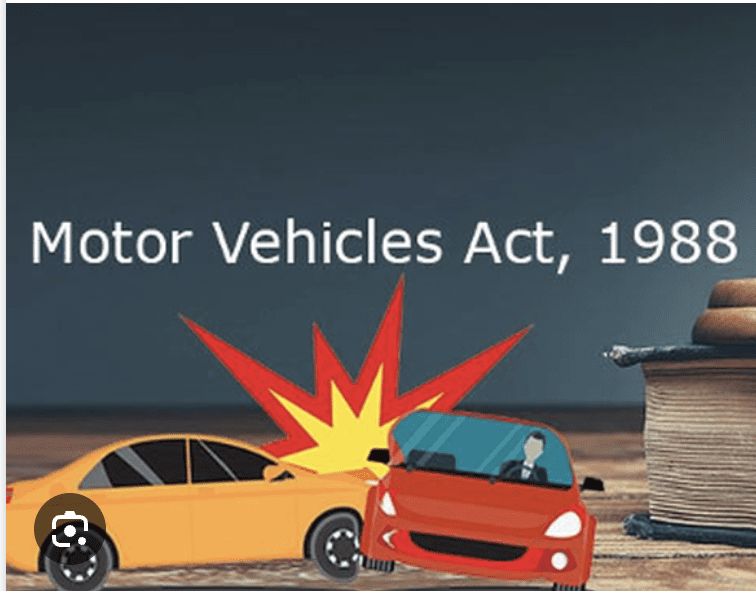Case Title: A Vasanthi v S Jayakumar
Case No: C.M.A.No.1960 of 2017
Decided on: 15th December, 2023
CORAM: THE HON’BLE MR. JUSTICE R. SUBRAMANIAN AND THE HON’BLE MR. JUSTICE N. SENTHILKUMAR
Facts of the Case
The claimants of the appeal are requesting damages for K. Arulappan’s premature death in a car accident that happened on February 26, 2009, at approximately 11:30 a.m. A truck that was heading in the other direction collided with Arulappan while he was strolling close to the Madhavaram Milk Dairy’s back gate. The plaintiffs requested Rs. 27,00,000 in compensation, claiming that the lorry was being driven carelessly and dangerously. The deceased’s monthly salary of Rs. 18,000/-was demanded in addition to compensation for loss of consortium, funeral costs, and other damages, arguing that the accident was caused by the driver’s negligence.
Even though the claimants insisted that the lorry was involved in the accident, the tribunal denied their claim because they were unable to provide sufficient evidence. The magistrate judged the closed FIR to be time-barred, and the tribunal stated doubts about the quality of the evidence that was offered. Notably, because the charge sheet had not been punctually submitted with the criminal court but had somehow surfaced during the tribunal hearings, the tribunal expressed worries regarding the circumstances surrounding it, thinking that it may have been manipulated or tampered with. The compensation plea was dismissed as a result of the tribunal’s finding that there was not enough evidence to back up the claim.
Legal Provisions
Section 173(2) of the Code of Criminal Procedure (CrPC) imposes a statutory obligation on the Police Officer to forward the final report to the concerned Magistrate. Section 468 of the Code of Criminal Procedure (CrPC) prescribes a limitation period for the filing of final reports. The court expressed concern over instances where final reports were not filed within the stipulated time, leading to potential acquittals. The court drew a comparison between the compensation awarded under the Motor Vehicles Act for road accident victims, where the offending vehicle is identified, and the compensation for hit-and-run cases.
Issues
How did the final report or charge sheet, which was supposed to be filed before the Criminal Court under Section 173(2) of the Code of Criminal Procedure, end up being presented before the Tribunal after the criminal case was closed as barred by limitation under Section 468 of the Criminal Procedure Code, 1973?
Courts analysis and decision
Due to a notable discrepancy in the amount of compensation paid to victims of hit-and-run accidents compared to those covered by the Motor Vehicles Act, the High Court has directed the State government to re-evaluate the compensation plan. The court voiced concern that the low compensation that exists now would encourage people to stage events by planting cars in order to get bigger compensation amounts. The necessity for a comprehensive review to stop these kinds of activities was underlined by the court, who proposed that changing the compensation structure will deter car planting and provide just recompense for victims of hit-and-run accidents.
The High Court also pointed to cases in which inadequate inquiries following traffic accidents resulted in police cooperation with accident victims. In order to prevent the early closure of First Information Reports (FIRs) in accordance with Section 468 of the Criminal Procedure Code, the court suggested that the Director General of Police take appropriate action. The court emphasised that police officers are required by law to swiftly transmit their final reports to the relevant magistrate in accordance with Section 173(2) of the CrPC. The court maintained that if this duty is not met, the police officer will be found not guilty, making these final reports useless. The court issued orders to guarantee the timely filing of final reports in light of these remarks, stressing the significance of adhering to procedural.
“PRIME LEGAL is a full-service law firm that has won a National Award and has more than 20 years of experience in an array of sectors and practice areas. Prime legal fall into a category of best law firm, best lawyer, best family lawyer, best divorce lawyer, best divorce law firm, best criminal lawyer, best criminal law firm, best consumer lawyer, best civil lawyer.”
Written by- Rupika Goundla


